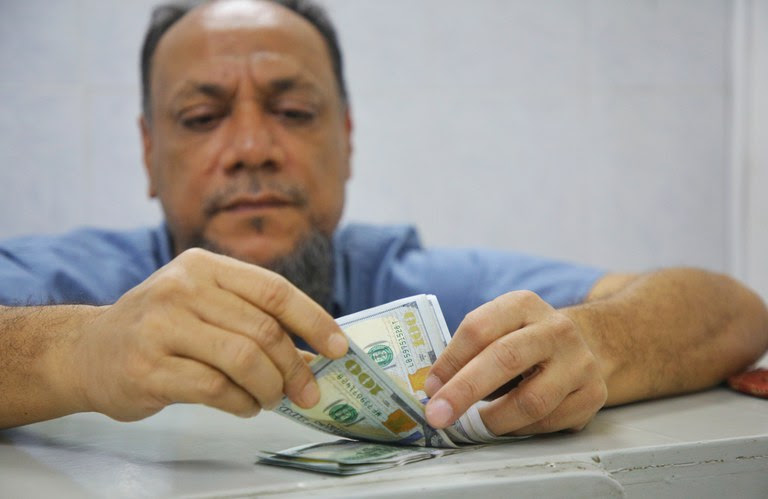By Ahammad Foyez on Jul 27, 2022 Benar News
A government minister confirmed Wednesday that Bangladesh is seeking a loan from the International Monetary Fund at a time when the country is coping with depleted foreign currency reserves, high inflation and a sharp dip in the taka’s value against the U.S. dollar, among troubling economic trends.
Finance Minister A.H.M. Mustafa Kamal did not reveal the amount that Dhaka had requested in a letter to the IMF on Sunday. But a ministry official, who was not authorized to speak to reporters, said the government had asked the Washington-based international lender for U.S. $4.5 billion.
Kamal did say the government would accept money from the IMF but only if terms and conditions are favorable to Bangladesh.
“If we expose our request, if everyone comes to know, the burden of the loan will be high,” Kamal told reporters as he declined to attach a dollar figure to the loan request.
“We will stay alert so that no terms and conditions go against us. We did not say the amount. We will see their condition first. If they positively benefit us, we will consider it.”
Kamal and other government officials are denying that the South Asian country is in an economic crisis or close to the type of economic trouble that plunged Sri Lanka into deep turmoil. Nonetheless, Bangladesh, like its neighbor to the south, has had to implement power blackouts while seeing prices for food and consumer goods soar.
Kamal blamed Russia’s invasion of Ukraine for disrupting the Bangladeshi economy and bringing about the need to request a loan from the IMF – the first since Dhaka received $987 million from the lender in 2012.
On Wednesday, a spokesperson for the fund released a statement about Dhaka’s newest request.
“The IMF stands ready to support Bangladesh. The staff will engage with the authorities on program design as per the established policies and procedures of the fund. The amount of support will be part of the program design discussions,” the statement said, according to the Reuters news agency.
The government is seeking the loan at a time when Bangladesh has seen its foreign exchange reserve fall to $39.61 billion (as of Tuesday) from $48.06 billion in August 2021. The last time the country’s foreign reserve fell below $40 billion was in October 2020, according to data from the central bank.
Meanwhile, the Bangladesh Bureau of Statistics said the country saw a 7.56 percent inflation rate in June, the highest figure since 2014 and nearly two points higher than the 5.64 percent rate recorded a year earlier.
Inflation along with the depreciation of the taka against the dollar, which lost more than 7 percent of its value this year alone, depleted Bangladesh’s reserves, the finance minister said.
Kamal said the value of the dollar against the taka would eventually come down as Bangladesh’s economy improved.

Central bank funds
Sirajul Islam, a spokesman for the Bangladesh Bank, the central bank, told BenarNews that it had injected $182 million into the financial market on Monday and Tuesday to help commercial banks meet demand.
Since the beginning of the fiscal year, on July 1, it has injected $990 million into commercial banks to allow them to settle payment obligations on imports, he said.
Meanwhile, Prime Minister Sheikh Hasina tried to reassure the public that existing foreign currency reserves should be enough to cover more than a half year of import expenditures.
“We have money in our hands to import food grains and others [essentials items] for at least three months during any crisis. We will be able to import food for six to nine months – not only for three months – with the reserve that we have now,” she said on Wednesday.
Still, Salehuddin Ahmed, a former Bangladesh Central Bank governor, called on officials to be careful about spending.
“The country should concentrate on reducing the import of goods,” he said, as he warned that the nation could face financial shortfalls if it failed to meet demands for locally produced goods.
Ahsan H. Mansur, executive director of the Policy Research Institute, a local think-tank, described the request to the IMF as a step in the right direction.
“Along with giving the loan, the IMF could provide conditions to reform the economy which I am sure would create a positive impact,” he told BenarNews.
Fuel demands
Elsewhere, the Power, Energy and Mineral Resources Ministry said it had taken steps to import fuel oil to meet demand for the next six months – even as supplies are adequate for now.
“There are sufficient fuel reserves in the depots of the companies under Bangladesh Petroleum Corp.,” it said in a news release on Wednesday.
On Wednesday, the nation’s stockpile included 431,835 tons of diesel to meet demand for 32 days, as 13,607 tons of diesel are sold each day, the ministry said.
The announcement followed the imposition of regional power blackouts over the past week – a move an energy watchdog blamed on a bad law.
M. Shamsul Alam, the Consumers Association of Bangladesh energy adviser, said the nation’s Speedy Energy and Power Supply Act encouraged corruption.
“Bureaucrats engaged in corruption without any fear because of the indemnity offered in the law and it led to a complete regulatory failure,” Alam told BenarNews.
According to a report by Al Jazeera, diesel power plants along with some gas-fired plants across the country have been taken off the electricity grid even as the country experienced blackouts in recent weeks, sometimes for up to 13 hours a day. In addition, thousands of mosques were asked to cut back on their use of air conditioners to not overstrain the grid.
Power Division secretary Md. Habibur Rahman blamed the blackouts on the Russian invasion of Ukraine.
“If anybody tries to link any other thing with the issue, that would not be wise,” he told BenarNews.
